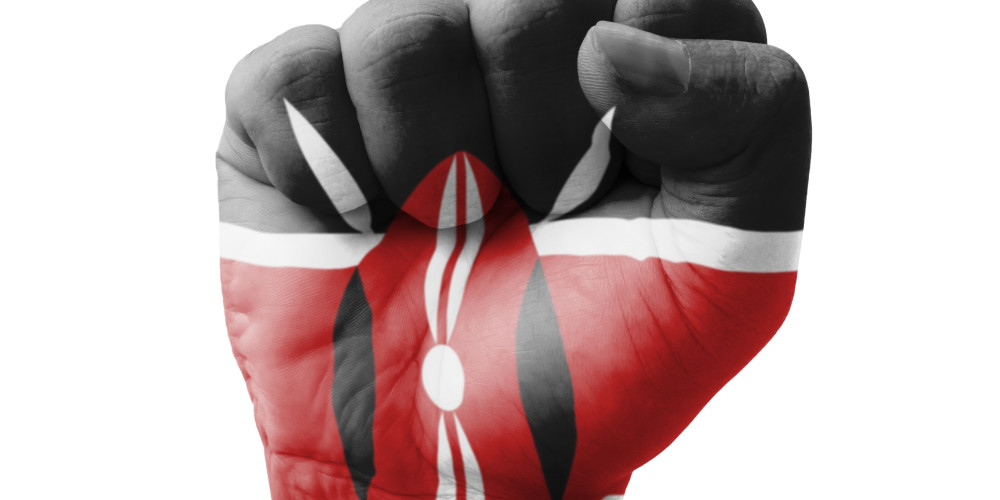What our Marathon Man taught us

At the start, it looked like a fearsomely crowded field. There seemed to be a dozen or so highly talented fellows who could win this thing. I knew we had an outstanding man in the race, but I was afraid. There were many others there who looked equally well prepared and in prime physical condition.
Well into the race, the leading pack was still sizeable. The contenders were all pumping away, matching one another stride for stride. The group started to whittle away as it inevitably does, but it was still worryingly large. It took a very long time for the half-a-dozen or so genuine contestants to become visible.
With nearly a third or so of the long race to go, our man finally made his move. And what a move it was. No drama, no sudden change. His legs just started to pound the pavements a little bit harder. It took several minutes for it to be clear that he had started to put daylight between himself and the chasing pack.
I waited for them to respond. Nothing came. The gap grew slowly larger. Our runner’s stride was unfaltering, his resolve evident in his steely gaze. This man was going to win, and no one was going to stop him. One by one, he burned them. They tried to keep up and couldn’t. With several kilometres to go, it was very clear to every person watching in the world that there would be only one winner in this race. Only an act of God would stop him. The humans were thoroughly defeated.
Eliud Kipchoge won the Olympic Men’s Marathon in Rio last Sunday. As he left everyone trailing and flailing, I wondered: what would our country be like if we ran it like this man ran his race?
Look first at the preparation. Kipchoge is famously austere and committed to a strict training regime. A profile of him in Runner’s World in April highlighted his detailed preparation for his races; his simple habits and diet; his unrelenting focus.
Next, look at his attitude. He treats sport as a profession, he says. Not a short-lived money-making scheme, but a lifelong participation in an occupation of value. He’s not a hustler, he’s a professional. When his running days are over, he’ll stay in the profession as an educator.
Lastly, look at his patriotism. Even the international press noticed Kipchoge’s demeanour on the podium when he received his gold medal. When Kenya’s anthem rang out, his face was sombre and focused. He was clearly thinking of the words of his country’s credo. He was still and respectful. He took pride in his flag. His expression changed to joy only when the anthem stopped.
Preparation. Professionalism. Patriotism. How I wish those very attributes could be displayed by those who run the sport of athletics in this country, not just those who run in it. We may have had an excellent medals haul in Rio, but the management and leadership of our entourage left most Kenyans shame-faced. As allegations swirl about freeloading, joyriding, and even diversion of athletes’ official kits, we don’t know where to hide.
Look even further. If we ran government with proper preparation, professionalism and patriotism, where would we be today? We may play in the top leagues in the athletics arena, but in most other things we remain stragglers. If the people who are given the privilege of power and decision-making did so in the interests of all, with proper application and with high standards, this country would be a powerhouse. It has all the talent and spirit it needs. It just needs to be run properly at all levels.
Eliud Kipchoge said in April: “I’ll be the first to say it: If you train well, concentrate well, stay healthy, then you can run a world record and win medals without anything bad.”
Could we please listen to this timeless wisdom? It applies to the entire nation. We need to stay healthy, not morally corrupted. We need to prepare ourselves using the right frameworks and controls. We need to focus on what really matters. Then, long-term success will be ours. And no short-cuts or fakery will be needed. We will win on our merits.
So congratulations Eliud Kipchoge, and everyone who wins in the right way. It is always a sight to behold.
(Sunday Nation, 28 August 2016)

Buy Sunny Bindra's new book
The X in CX
here »
Popular Posts
- Where are you rushing to—your funeral?June 29, 2025
- How to spot a real thinkerJune 15, 2025
- The map will appear—once you start walking.July 6, 2025
- Built the app, forgot the flowJune 22, 2025
- The pause that saves usJune 8, 2025















